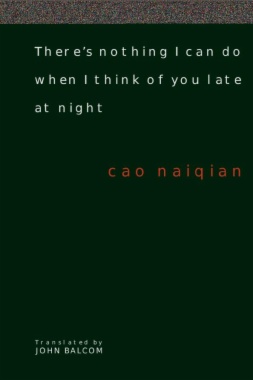Set among a remote cluster of cave dwellings in Shanxi province, There's Nothing I Can Do When I Think of You Late at Night is a genre-defying exposé of rural communism. In a series of vivid, interlocking vignettes, several narrators speak of adultery, bestiality, incest, and vice, revealing the consequences of desire in a world of necessity.
The Wen Clan Caves are based on an isolated village where the author, Cao Naiqian, lived during the Cultural Revolution. The land is hard and unforgiving and the people suffer in poverty and ignorance. Through the individual perspectives of the Wen Clan denizens, a complete portrait of village life takes shape. Dark yet lyrical, Cao's snapshots range from pastoral stories of childhood innocence to shocking accounts of brutality and terror. His work echoes William Faulkner's Go Down, Moses and Sherwood Anderson's Winesburg, Ohio, yet the author's depictions of elemental passions and regional mores make the book entirely his own.
Celebrated for its economy of expression, flashes of humor, and an emphasis on understatement rarely found in Chinese fiction, There's Nothing I Can Do When I Think of You Late at Night is an excellent introduction to the power and craft of Cao Naiqian. His vivid personalities and unflinching realism herald the haunting work of an original literary force.
- Table of Contents
- Introduction: The Austere Lyricism of Cao Naiqian, by John Balcom
- The In-law
- Women
- Leng Er's Madness
- In a Nest of Oat Straw
- Uncle Pothook
- Men
- Thieves
- Widow San
- Dog
- Party
- Leng Er, Leng Er
- Lucky Ox
- Eating Cakes
- Old Guiju
- Danwa
- Heinu and Her Andi
- Sun-Drenched Nest
- The Woman of the Zhu Household
- Lucky Ox, Lucky Ox
- Heavenly Sun
- The Graveyard Shift
- Dog, Dog
- Chou Bang Herds Sheep
- The Taste of Oat Flour
- Wen Shan's Woman
- Old Yinyin
- Watching the Fields
- Old Guiju and His White Neck
- Flushing out Ground Squirrels
- Corncob

